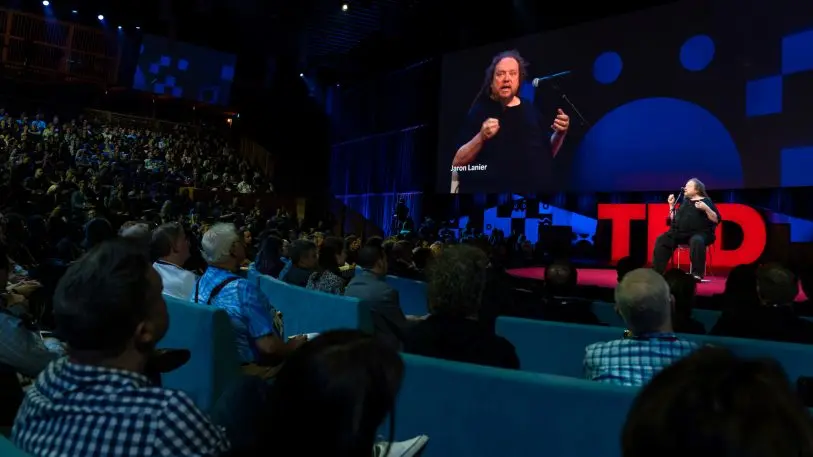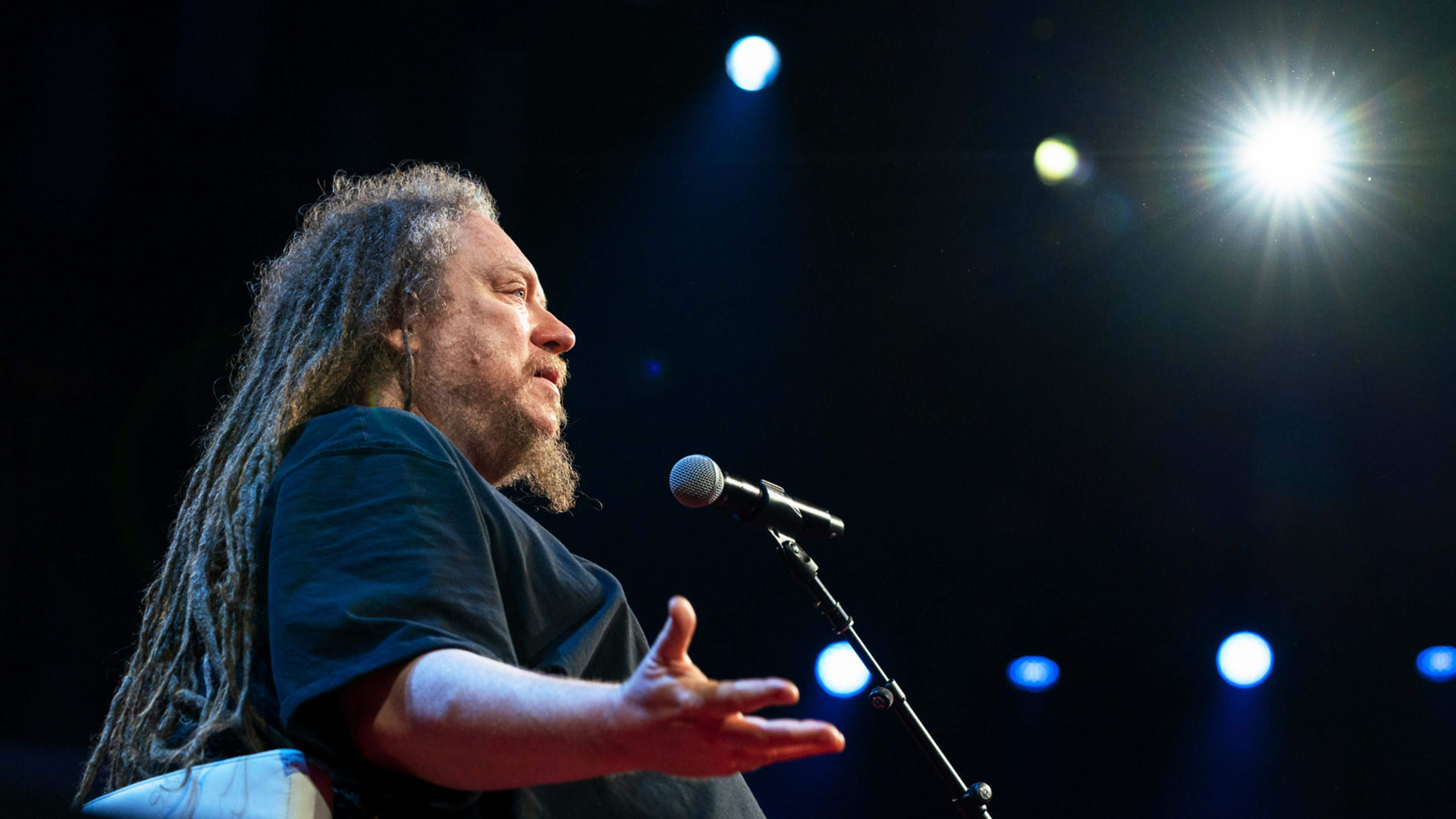Back in the 1980s, Jaron Lanier, one of the original founders of artificial intelligence and virtual reality, gave his first talk on the stage at TED. He brought some of the first-ever demonstrations of virtual reality to accompany and told the audience something to cut through the swell of enthusiasm at the new tech.
“We knew we were facing a knife-edge future,” Lanier says at this year’s TED conference in Vancouver. “The technology we needed, and the technology we loved, could also be our undoing.”
His prediction of 30 years ago turned out to be stunningly prescient. With the failures of platforms like Facebook and Google to protect their users and adequately vet the information that flows through their programs becoming ever more clear, the societal undoing that Lanier glimpsed seems to be upon us.
This is due, Lanier says, to an error on the part of the tech’s early founders. “I believe that we made a very particular mistake, and we made it very early on,” he says. “But by understanding this mistake, we can undo it.”

This mistake was this: Lanier and his fellow early tech pioneers believed very strongly that the platforms and systems they were developing should be accessible and free to as many people as possible to use. “But we also loved our tech entrepreneurs, our Steve Jobs’, the Nietzscheian myth of the techie that could dent the universe,” he says. That left the nascent industry with a conundrum: “How do you celebrate entrepreneurship when everything’s free?”
The answer, Lanier says, was the advertising model. “So Facebook was born free, with ads, and Google was born free, with ads,” he says. “In the beginning, it was kind of cute–you would see ads for your local dentist.”
But the algorithms got smarter, and the advertisers got bigger–less specific, but more targeted. That, Lanier says, fundamentally changed the nature of the networks. “I can’t call them social networks anymore–I call them behavior-modification empires,” he says.
Financing these platforms via paid advertisements, Lanier says, is no longer viable. That’s what’s lead to the proliferation of fake news, corporate manipulation, and insecure data across, chiefly, Facebook and Google. “We can’t have a system where if people want to communicate, the only way that’s possible is financed by a third party who wants to manipulate them,” he says.
So what’s the alternative? Turn back the clock, and remake the decision that led to this fatal error. Instead of searching Google and logging into Facebook for free, users would pay a small fee to do so. To those who don’t believe that people would be willing to fork over the money for these platforms, Lanier reminds us that it worked for Netflix. “And right now, we’re at peak TV–I like to imagine a world of peak social media,” he says. In it, we could access real, verified information instead of that served up by “cranks,” Lanier says, and communication channels free of advertiser interference.
It would not be as simple as everyone paying a flat fee: Platforms like Facebook and Google might pay some users to compensate for the data they feed into their systems, and lower-income users could be subsidized, perhaps through a government program.
“We don’t need to punish Silicon Valley–we need to remake that decision,” Lanier says. “There’s a lot of details to work out, but it’s totally doable.”
Recognize your brand's excellence by applying to this year's Brands That Matters Awards before the early-rate deadline, May 3.
